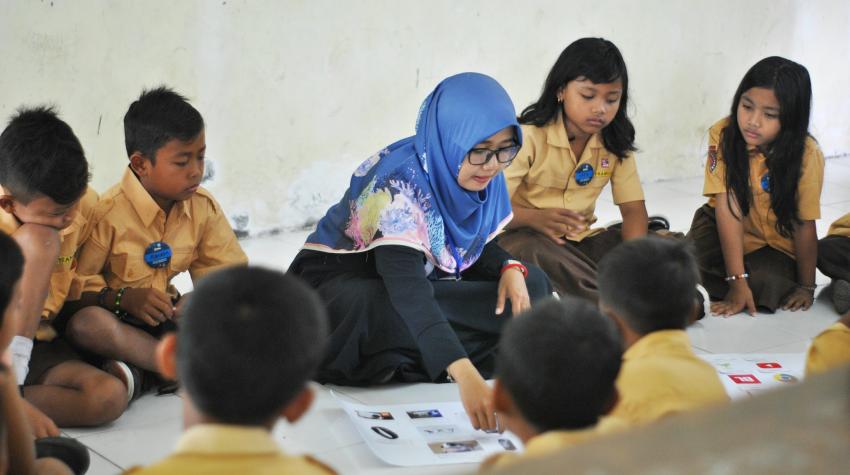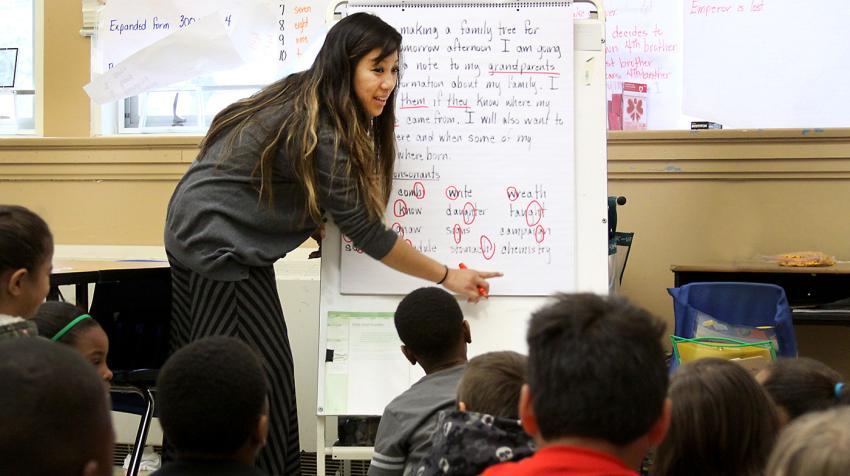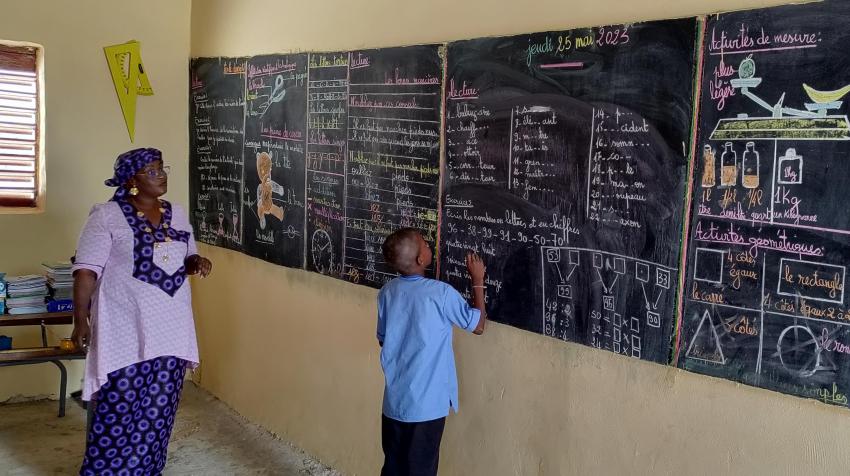In the wake of the unprecedented COVID-19 crisis, the world has witnessed the resilience and adaptability of educators, who played a pivotal role in ensuring the continuity of learning during the global pandemic. As we celebrate World Teachers' Day on 5 October, we must reflect on the critical role of teachers in rebuilding education and advancing the Sustainable Development Goals (SDGs). We do so against a backdrop of an ever-growing global shortage of teachers.
The pandemic had a profound impact on education, students and communities. Teachers working under challenging conditions innovatively incorporated remote learning to reach students. The rapid switch to digital platforms wasn't just about mastering new technology; it involved teachers reaching across the digital divide, ensuring that every student, regardless of their circumstances, felt seen, heard and valued.
The pandemic also negatively affected teachers themselves and exacerbated the growing global teacher shortage. According to estimates produced by the United Nations Educational, Scientific and Cultural Organization (UNESCO) in 2016, the world needs nearly 69 million more teachers by 2030 to achieve universal basic education (SDG 4), yet current trends see this deficit increasing.
Today, teachers are overworked, undervalued and underpaid, and more and more are forced to leave the profession. At the same time, fewer young people aspire to be teachers. It’s easy to see why. Working conditions have deteriorated, pay has not kept up with inflation, workloads have skyrocketed, and professional autonomy has been steadily replaced with never-ending controls and bureaucracy.
The High-Level Panel on the Teaching Profession: A United Nations commitment
Recognizing the crucial role of educators, the United Nations took a commendable step forward, establishing the High-Level Panel on the Teaching Profession on 19 June 2023. The Panel emerged from the 2022 Transforming Education Summit, which underscored the need for a comprehensive approach to global education challenges. At the Summit, more than 100 countries committed to various aspects of educational transformation, including strengthening the teaching profession and financing education.

Central to the premise of the High-Level Panel is that teachers are the heart of all education systems, that their well-being and working conditions determine students’ learning conditions. It is imperative to fund public education, invest in teachers, guarantee their labour rights and ensure that their working conditions are sound. Investing in education is not only about funding; it is about respecting and valuing pedagogical expertise, and involving teachers in decision-making processes.
The High-Level Panel’s mission is clear: ensure that every student benefits from a professionally trained, qualified and well-supported teacher. Comprising representatives from United Nations Member States, academia, teachers' unions and civil society, the Panel will provide actionable recommendations to guide governments towards transformative education systems. These insights are anticipated to significantly influence the United Nations Summit of the Future, to be held in 2024. The Panel's recommendations will be launched in the coming months and will serve as a guide for supporting the teaching profession to ensure the right to education of all learners around the world.
Key directions from the Panel
The recommendations of the High-Level Panel underline the importance of teachers and offer a clear direction:
- Enabling teaching environments: Teachers require supportive environments to do their job effectively. This is underpinned by adequate resources, trust, respect and societal recognition.
- Safeguarding rights and freedoms: We need to uphold teachers' rights in line with international standards, ensuring that freedom of expression, freedom of association and academic freedom are guaranteed. A protected teacher is an empowered teacher. Safeguarding their rights is non-negotiable.
- Flexible learning paths: We should encourage cooperative learning pathways, moving away from rigid, narrow assessment metrics. A one-size-fits-all approach doesn't cut it—education should cater to diverse needs.
- Tailored policies: Countries should follow comprehensive, holistic, national education policies crafted in consultation with teachers and their unions. A road map for hiring, training and supporting teachers is crucial.
- Equity, diversity and inclusion: We need to foster a diverse teaching workforce, providing pathways, protection and training for marginalized and vulnerable groups.
- Support in crisis zones: We must ensure tangible support for teachers in crisis-affected regions with clear policies, professional development opportunities and hazard pay provisions.

Reimagining education as a public good
Education International (EI) champions the High-Level Panel’s efforts to strengthen the teaching profession. Yet the real challenge lies in translating these recommendations into tangible actions. The road behind us is littered with useless and expensive educational fads that have distracted from focused implementation and damaged the requisite trust that transformation requires. Governments globally must commit to implementing comprehensive strategies to address the teacher shortage.
In the aftermath of the COVID-19 pandemic, as we rebuild and reimagine, investing in our teachers is a global imperative. Teachers are at the heart of our collective future. They deserve appreciation and tangible support in the form of resources, training and policies.
This World Teachers’ Day, let’s move beyond platitudes. Let's commit—not in words, but in actions—to ensuring that our teachers are well-equipped, valued and heard. Addressing the challenges that the teaching profession faces today paves the way for a more equitable and sustainable world. The time for action is now.
The UN Chronicle is not an official record. It is privileged to host senior United Nations officials as well as distinguished contributors from outside the United Nations system whose views are not necessarily those of the United Nations. Similarly, the boundaries and names shown, and the designations used, in maps or articles do not necessarily imply endorsement or acceptance by the United Nations.




